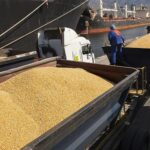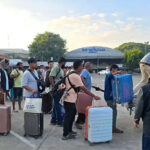Last month, the Myanmar military’s raids on notorious telecom fraud hubs like the KK Industrial Complex were initially seen as a decisive blow to the border crime ecosystem. However, after the smoke cleared, the anticipated peace failed to materialize. Recent reports from AFP and other media outlets paint a more complex and worrying picture: a massive “second wave of recruitment” is underway, with displaced telecom fraud workers not only not disappearing but quickly finding new employment amidst the chaos. This profoundly reveals that, without fundamental social reforms, military crackdowns alone cannot eradicate the parasitic crime of telecom fraud.
The raids appeared remarkably successful—the seizure of 30 Starlink devices ensured anonymous communications, searches of hundreds of buildings, and the arrest of over 2,000 individuals involved in fraud. However, this is merely the tip of the iceberg. Security experts estimate, based on the latest information, that a large number of people from the KK Industrial Complex, which once housed approximately 20,000 people, are “missing” during the raids. They didn’t truly disappear; rather, they dispersed, spreading like a virus and quietly infiltrating other telecom fraud hideouts in the surrounding area. A “great escape” involving people from multiple countries evolved into a bizarre redistribution of criminal human resources.
This rise of a “secondary recruitment wave” is rooted in the distorted socioeconomic soil of the region. For many residents and even migrant workers, given the severe employment situation and survival pressures, telecom fraud is not an unforgivable crime, but a “job” that offers income far exceeding the local average. One practitioner’s confession is stark and realistic: lured by a monthly salary of $1400, his organization recruited hundreds of people who had escaped from the KK campus in a single day, most of whom “volunteered.” This “high-salary” temptation, in stark contrast to the widespread economic hardship in the area, constitutes the underlying driving force behind the persistent telecom fraud industry.

Even more serious is that the dispersed practitioners not only face economic temptations but may also fall into deeper levels of control. The report points out that armed groups and gangs entrenched nearby are taking advantage of the situation, vying to plunder these “unemployed” skilled workers, viewing them as tradable assets, with “transfer fees” reaching as high as $70,000. This exposes the deeply entrenched armed profit chain behind the telecom fraud industry. These local forces see the telecom fraud industrial parks as a vital source of revenue. Their existence and tacit approval mean that any crackdown that doesn’t touch their fundamental interests inevitably becomes a superficial “harvesting” operation—cutting one crop only to have a new, more thriving crop quickly spring up under new protection.
Thai police estimates of up to 100,000 telecom fraud perpetrators gathered along the Thai-Myanmar border are alarming. Behind this enormous number lies a vast criminal ecosystem nurtured by poverty, unemployment, local armed separatism, transnational criminal networks, and governance failures. While the Myanmar government’s efforts in recent years have been effective, in areas controlled by complex ethnic armed groups, the government’s authority and law enforcement capabilities are severely limited, resulting in a perceived “insufficient” crackdown by the local population and failing to create a lasting deterrent.
While the physical walls of the KK campus may have been partially destroyed, the social roots that breed telecom fraud have not yet been addressed. This “second wave of recruitment” serves as a mirror, reflecting the deep-seated problems of telecom fraud. It warns us that eradicating telecom fraud is far more difficult than a single military operation; it requires international cooperation to fundamentally address local development challenges, weaken the economic foundations of armed separatism, and create legitimate and dignified livelihoods for the people. The road ahead remains long and arduous.










